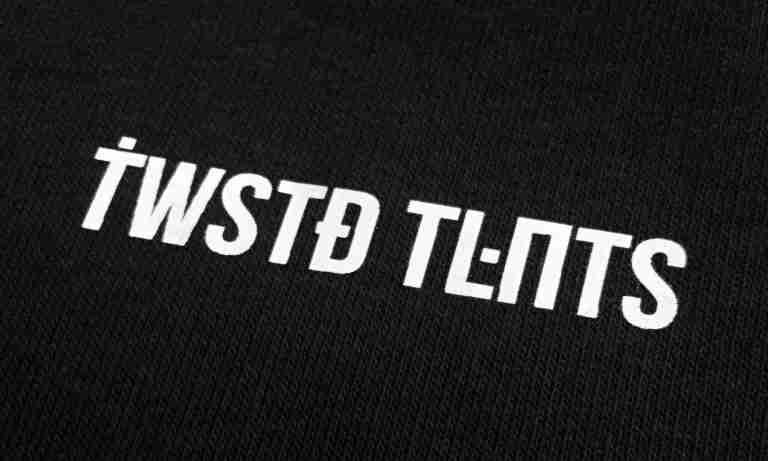The specific distribution of scores on the DISC personality test is an indication of your unique personality.
The DISC theory, researched by Dr. William Moulton Marston at Harvard University, is a method of identifying predictable actions and personality traits within human behavior.

You can think of this as your DISC Personality ‘DNA’. The highest percentage is likely to be the most dominant personality factor, the second highest the next most dominant personality factor and so on.
DISC Personality Model
The definitions of the four factors measured in the DISC model.
- Dominance: Describes the way you deal with problems, assert yourself and control situations.
- Influence: Describes the way you deal with people, the way you communicate and relate to others.
- Steadiness: Describes your temperament – patience, persistence and thoughtfulness
- Compliance: Describes how you approach and organize your activities, procedures and responsibilities.
DISC Patterns Or Profiles
There are literally thousands of different combinations of scores. Therefore to help interpretation, communication and understanding, DISC Personality Model experts have defined – through statistical analysis of the score combinations – fifteen DISC ‘Patterns’ or ‘Profiles’.
The ‘Profiles’ are often given names. The objective of these names is to give a single descriptive term that captures the essence of that Profile. Names often used are
- Achiever, Coach, Evaluator, Counselor, Creative, Individualist, Inspirational, Investigator, Objective Thinker, Perfectionist, Persuader, Practitioner, Enthusiast, Results-Oriented or Specialist.
To understand the DISC theory even further descriptions are given for people who score comparatively high and comparatively low on each of the four DISC dimensions:
Dominance, Influence, Steadiness and Compliance.
Dominance: Comparatively High
- enjoy competition and challenge.
- are goal orientated and want to be recognised for their efforts.
- aim high, want authority and are generally resourceful and adaptable.
- are usually self-sufficient and individualistic.
- may lose interest in projects once the challenge has gone and they tend to be impatient and dissatisfied with minor detail.
They are usually direct and positive with people, enjoying being the centre of attraction and may take it for granted that people will think highly of them. They may have a tendency to be rather critical of others. Consequently, other people may tend to see them as being rather domineering and overpowering.
Dominance: Comparatively Low
- tend to want peace and harmony.
- prefer to let others initiate action and resolve problems.
- are quiet and indirect in their approach to most situations.
- are usually cautious and calculate risks carefully before acting.
They are generally well liked because of their mild and gentle nature. Other people will tend to see them as being patient, calm, thoughtful and a good listener.
Influence: Comparatively High
- are strongly interested in meeting and being with people.
- are generally optimistic, outgoing, and socially skilled.
- are quick at establishing relationships.
Sometimes their concern for people and people’s feelings may make them reluctant to disturb a favourable situation or relationship.
Influence: Comparatively Low
- are usually socially passive.
- quite frequently have an affinity for things, machinery and equipment.
- are generally comfortable working alone.
- frequently have a tendency to be analytical and once they have sorted the facts out they communicate them in a straightforward direct way.
- tend to take little at face value.
They may well have learned and developed good social skills but they only bring these into play when logic dictates such tactics.
Steadiness: Comparatively High
- are usually patient, calm and controlled.
- have a high willingness to help others particularly those they consider as friends.
Generally they have the ability to deal with the task in hand and to do routine work with patience and care.
Steadiness: Comparatively Low
- tend to enjoy change and variety in their work and non-work life.
- are expansive by nature and tend not to like routine and repetitive work/activities.
They enjoy stretching themselves intellectually and physically.
Compliance: Comparatively High
- are usually peaceful and adaptable.
- tend not to be aggressive.
- tend to be cautious rather than impulsive.
- avoid risk-taking.
- act in a tactful, diplomatic way and strive for a stable, ordered life.
- are comfortable following procedures in both their personal and business life.
They prefer sticking to methods that have proved successful in the past. They have a high acceptance of rules and regulations.
Compliance: Comparatively Low
- are independent and uninhibited.
- resent rules and restrictions.
- prefer to be measured by results and are always willing to try the untried.
- are free in thought, word and deed, they long for freedom and go to great lengths to achieve it.
They feel that repetitive detail and routine work is best “delegated” or avoided.
Eric’s DISC Personality Type

In the pie chart, you see Eric’s’ distribution of scores. As such for him, the DISC factors are ordered as DICS, thus making up his DISC DNA:
- Dominance: Describes the way he deals with problems, asserts himself and controls situations: Is he direct, strong-willed, and forceful (fast-paced and skeptical)?
- Influence: Describes the way he deals with people, the way he communicates and relates to others: Is he sociable, talkative, and lively (fast-paced and accepting)?
- Compliance: Describes how he approaches and organizes his activities, procedures and responsibilities: Is he private, analytical, and logical (moderate-paced and skeptical)?
- Steadiness: Describes his temperament – patience, persistence and thoughtfulness: Is he gentle, accommodating, and soft-hearted (moderate-paced and accepting)?
The positive impact, he is likely to make on people is concluded below.
Traits Conclusion
The single personality traits mentioned here form a clear conclusion. They combine well to describe the overall personality shaped by these qualities.
“Eric is a clearly contoured individual who consistently exhibits a homogeneous behavior across various situations, driven by a total challenge mindset. He thrives in competitive environments, motivating others and achieving goals, while maintaining security and stability. His strong inner motivation influences people and circumstances, with a resilience that ensures his effectiveness under pressure. His intuitive, creative, and holistic approach to work emphasizes innovation and integration, complemented by a logical and analytical mindset for problem-solving. Eric’s ability to express ideas and teach, alongside his organizational skills, positions him as a thinking, organized creator and commercial entrepreneurial communicator who persuades doers. Gifted according to Stanford-Binet, highly intelligent per Cattell, and very superior per Wechsler, Eric is open to experience, conscientious, agreeable, and relaxed under stress. He achieves targets through determination and analytical focus, often perceived as pragmatic and objective. His top personality talents include implementation, creation, and analysis, with a work environment preference for detail orientation, risk appetite, and factual orientation. Autonomous and influential, Eric enjoys advanced working conditions, balances work-life effectively, seeks prestigious and financial rewards, values security, and consistently delivers performance while favoring self-development and occasionally underestimating work relationships.“










